While EV sales growth has slowed down this past year, demand was still up by about 10% in 2024. And the numbers would have been even bigger were it not for Tesla. While still the market leader, it suffered a first-ever annual sales decline last year. A variety of factors were at play, including CEO Elon Musk’s increasingly polarizing politics. More from Headlight.News.

“I bought this before we knew Elon was crazy,” has become a popular bumper sticker, noted a post by “Neal’s reviews and unboxings,” a popular influencer channel on YouTube.
Tesla experienced several “firsts” last year, though the Texas-based EV manufacturer isn’t likely to celebrate.
For the first time, Tesla took a tumble in year-over-year sales during 2024. And, for the first time, it now controls less than half of the expanding U.S. EV market – though the latter development was widely anticipated as competition intensifies.
There are a number of reasons why Tesla lost ground in 2024, starting with the rising power of domestic Chinese manufacturers like BYD, Great Wall and Geely. And there’s been more competition from traditional competitors such as General Motors, Volkswagen and the Hyundai Motor Group as they flood the market with new products.
But, at least some of the damage was self-inflicted, analysts blaming CEO Elon Musk for his increasingly strident political turn, as well as his ties to incoming President Donald Trump.
The numbers
The news wasn’t all bad. Tesla did manage to post record vehicle deliveries for the fourth quarter of the year, at 495,570 a 2.3% increase year-over-year. But that required significant discounting and other incentives and analysts are waiting to see what that will translate into when the automaker reports Q4 financial results on January 29, 2025.
Of more immediate concern was the company’s weak performance for the full year. Tesla delivered 1.79 million vehicles, a 1.1% downturn from the 1.81 million it handed over to customers around the world in 2023, it reported Thursday. By
Tesla does not break out numbers for individual markets but appeared to face challenges in a number of countries, starting with the U.S. where its CEO has become a polarizing figure, especially since his takeover of the old Twitter social media service in October 2023.
Politics pay off for Musk, but hurt Tesla
Even before he completed his $44 billion takeover of Twitter – now renamed X – Musk had grown increasingly vocal, and conservative, about politics. According to new documents, meanwhile, he invested $277 million to back the campaign of Donald Trump and is expected to become one of the incoming president’s most influential advisers.
“But, here in U.S., Elon Musk’s political activities have certainly not been helpful for Tesla’s reputation and sales,” said Sam Abuelsamid, the vice president of market research for Telemetry Insights. While Musk’s turn to the right may not have much impact abroad, “it certainly played a notable role in the sales drop in North America.
The problem, Abuelsamid and other analysts believe, is that EV buyers tend to sit on the Liberal side of the political spectrum. While Musk has become much more popular among conservatives, they continue to be much more resistant to purchasing EVs, recent studies have shown. Complicating matters, Musk has now played a role in dividing Republicans over issues such as H-1B visas, further impacting Tesla’s potential audience.
“I bought this before we knew Elon was crazy,” has become a popular bumper sticker among Tesla owners who have seen a dramatic shift in the reaction they get to their vehicles, noted a post by “Neal’s reviews and unboxings,” a popular influencer channel on YouTube.
More Tesla News
- Is Musk’s Political Shift Hurting Tesla?
- Tesla Autopilot Takes New Heat
- https://headlight.news/2024/12/20/tesla-recalls-700k-vehicles-due-to-tire-pressure-issue/7th Tesla Cybertruck Recall in a Year
Competition intensifies, even as Tesla’s products grow old
Another number generating concern: Tesla’s falling market share. Based on registration data, industry analysts note, Tesla’s share of the American EV market fell to 49% in October, down from 80% four years earlier.
The automaker is facing substantial new competition from manufacturers like Hyundai which debuted its new, 3-row Ioniq 9 at the Los Angeles Auto Show in November. General Motors this past year launched the GM Sierra EV and Chevrolet Silverado EV pickups, as well as the Chevy Equinox EV and Blazer EV. And it will reintroduce the Bolt badge on a model expected to start under $30,000 – even without federal tax credits.
Tesla’s biggest challenge, however, is coming from newly aggressive Chinese domestic brands like BYD, which has rolled out a procession of new EVs, and which has entered into an aggressive price war. The Chinese are not only gaining ground in their home market – the world’s largest for EVs – but also in places like Europe and Latin America. BYD sold 1.77 million all-electric vehicles, a 12% rise, in 2024, it reported.
Musk remains upbeat
While his company missed its 2024 sales targets, Musk remains upbeat for 2025, in an October earnings call forecasting Tesla sales should grow by 20% this year. Among other things, he has indicated that Tesla’s own entry-priced model is coming. But Musk has repeatedly flip-flopped on that topic and he’ll not only have to show a real product but make it clear when production will begin.
There are other products in the works, including the fully autonomous CyberCab, as well as the second-generation Tesla Roadster, but the latter product has been delayed repeatedly and it’s far from clear the robotaxi will debut, as promised in 2026.
The company could get a boost from the Cybertruck which, shortly after its debut reportedly logged over 1 million advance reservations. It finally launched in November 2023, but sales appear to be lagging well behind initial expectations, according to Abuelsamid and other analysts – something Tesla recently signaled with discounts of up to $20,000 on the electric pickup.
Meanwhile, last year’s update of the Model 3 did little to move the market, reviewers faulting Tesla for the relatively minimal number of changes made to the sedan. Tesla is expected to follow the same formula with the upcoming refresh of its best-selling Model Y.
Investors pull back – slightly
The weak 2024 sales numbers appear to have jarred Tesla investors, though some profit-taking should not come as a surprise, several observers told Headlight.News on background. The company’s stock is still nearly triple its 52-week low of $138.80 a share. But it’s off sharply from its $488.54 high, tumbling more than 6.6% as of 2:00 PM EST following the release of the 2024 sales numbers.
For now, though, most key investors and Wall Street analysts tracking the stock remain bullish.
That is, in large part due to the fact that, “over the last decade we have never viewed Tesla simply as a car company,” Wedbush analyst Dan Ives wrote in a Thursday advisory. “Instead, we have always viewed Musk and Tesla as a leading disruptive technology global player and the first part of this grand strategic vision has taken shape over the past 5 years.
“The next step in this broader Tesla strategic vision,” wrote Ives, “begins (with) the autonomous and AI era which will be accelerated under a Trump White House.”
That assumes, of course, that he will come out on top in the ongoing infighting within the Republican party and doesn’t completely alienate Tesla customers, as well. Musk has a history of coming out on top, but the weak performance Tesla reported Thursday clearly has some folks worried whether he can maintain his touch.

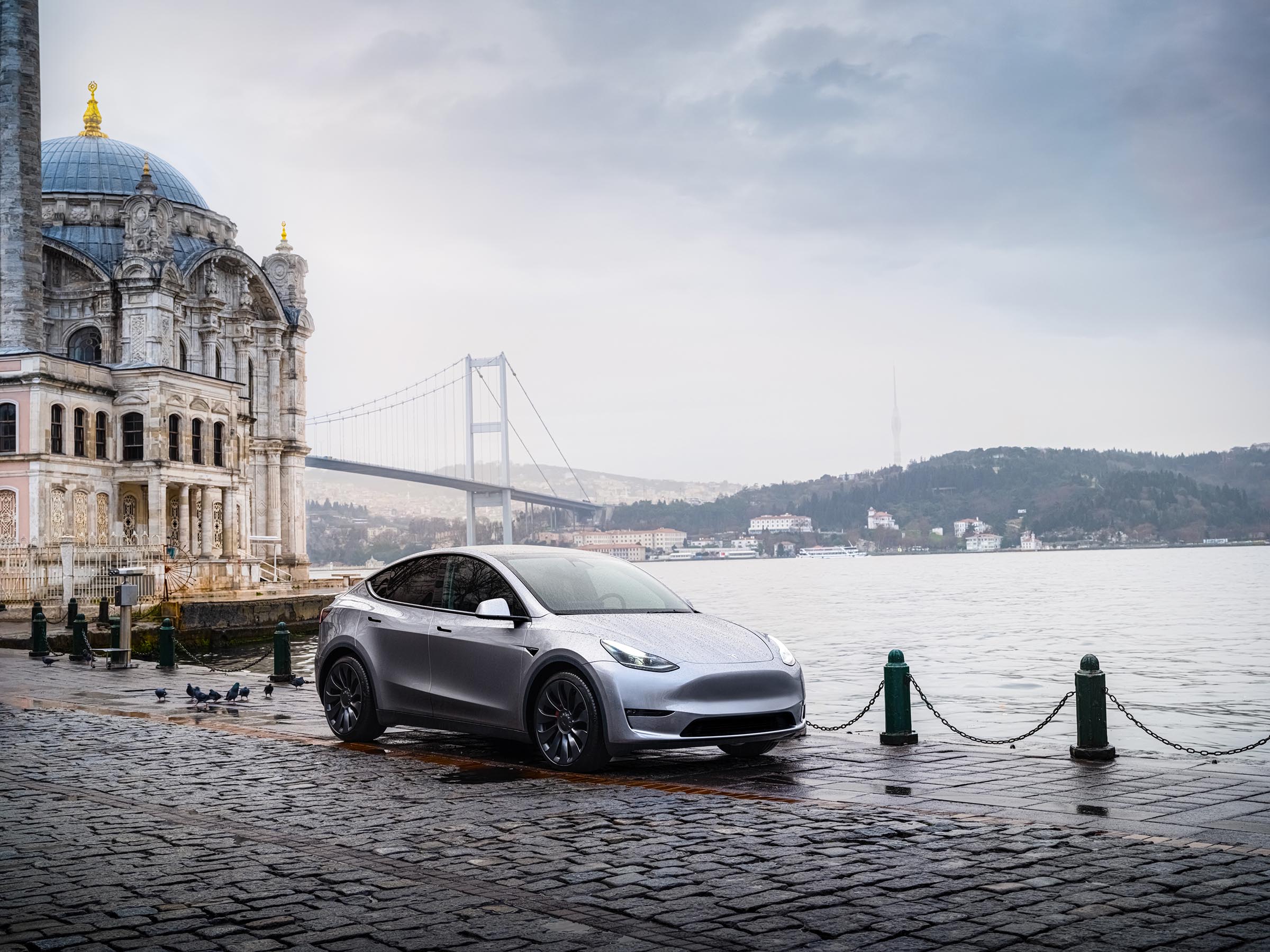
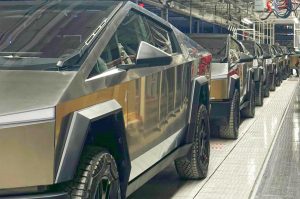

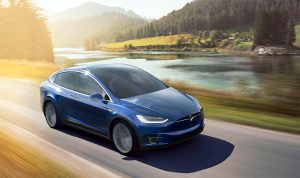
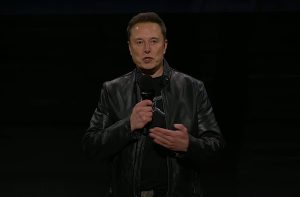
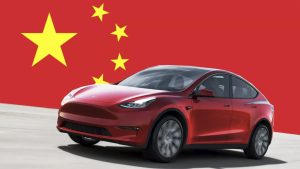


0 Comments